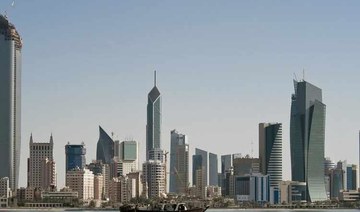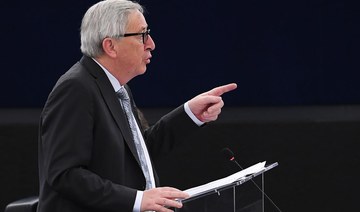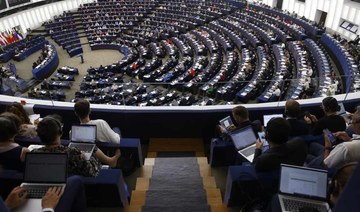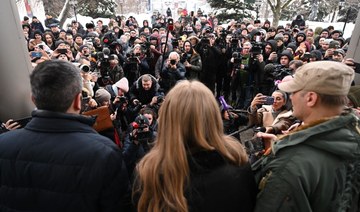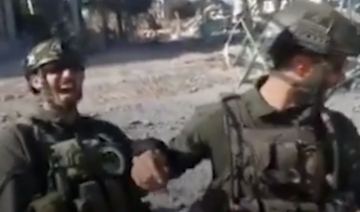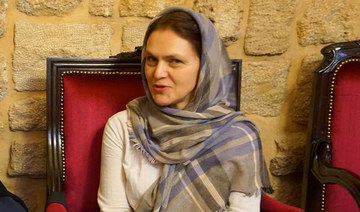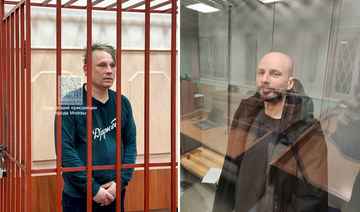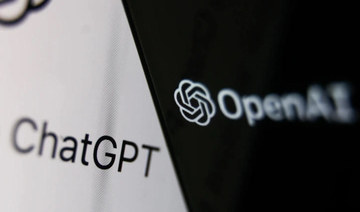WASHINGTON: Sri Lanka’s decision to block social media following deadly suicide attacks highlights a growing distrust of online platforms, but critics said the move is likely to restrict the flow of important news and information as well as abusive content.
The move comes amid growing frustration by governments around the world with Internet platforms over the propagation of misinformation and incitements of violence.
According to the digital rights group NetBlocks, Sri Lanka blocked Facebook, Facebook Messenger, Instagram, Snapchat, Viber, WhatsApp and YouTube following the Easter bombings targeting churches and hotels.
Sri Lanka’s move was the second time it has blocked social networks, following similar actions after an outbreak of violence in 2018.
The decision highlights the troubled reputation of mostly American-owned social media companies, which several years ago had been seen as a force for freedom of information.
“Governments around the world, including those who exploit social media and state media... have come to realize the risks associated with platforms such as WhatsApp,” Jennifer Grygiel, a professor of communication at Syracuse University, said in an email.
“They are quick to take action now in the wake of terrorism to prevent rumors and social unrest, but the ease at which they are able to shut down platforms also unveils how much power and control governments have over these companies and the need to protect the free press.”
According to NetBlocks, a digital rights and cybersecurity group, the shutdown in Sri Lanka may prove counterproductive by taking down sources of authentic information.
“Nationwide Internet restrictions accelerate the spread of disinformation during a crisis because sources of authentic information are left offline,” NetBlocks said in a tweet.
“This allows third parties to exploit the situation for political gain and profit.”
Sri Lankan authorities’ pledge to maintain the shutdown until its investigation is complete is troublesome, said Amy Lehr, director of the human rights initiative at the Center for Strategic and International Studies, a Washington think tank.
“We all have some sympathy when there is a terrorist attack, but what if it were a democracy protest in Iran?” Lehr asked.
“Who decides what is an emergency?“
By blocking Facebook, Sri Lanka also shut down the leading social network’s “safety check” feature that enables users to communicate with friends and family after a disaster.
“These attacks are horrific. And people need social media platforms to obtain accurate information & to contact loved ones,” tweeted Allie Funk, a researcher with the human rights group Freedom House.
“The government’s decision to restrict these apps is a dangerous one.”
Emma Llanso of the Center for Democracy & Technology, a digital rights group, said there are no easy solutions to misinformation on social media.
“Blocking websites can fuel disinformation by leaving journalists and other credible sources of information with fewer avenues to reach people and to debunk falsehoods,” she said. “We need more nuanced solutions.”
Prior research has indicated that Internet and social media blackouts may lead to more, not less, violence.
Stanford University researcher Jan Rydzak said in a February 2019 paper based on findings from India that “shutdowns are found to be much more strongly associated with increases in violent collective action than with non-violent mobilization.”
Efforts to regulate social media have picked up since the mosque shootings last month in New Zealand livestreamed on Facebook and reposted on other apps. Facebook and others struggled to remove various versions of the video.
The missteps of social media, however, have put governments on alert and sparked efforts to control information flows.
Misinformation is often seen during moments of crisis, including during last week’s fire at the Notre-Dame cathedral in Paris.
The ban in Sri Lanka “is the inevitable but unfortunate consequence of the platforms’ inability to stop the online amplification of conspiracy and outrage,” said Karen Kornbluh, a former White House policy director who now heads the Digital Innovation Democracy Initiative at the German Marshall Fund.
“This shows the false premise of the platforms’ mantra that any change in their practices will squash free speech... if they continue to turbo-charge disinformation this will lead to less online free speech.”
Lehr said one of the challenges for social platforms using algorithmic feeds is how to prevent false and abusive content from going viral.
“It’s not always a matter of blocking hate speech but also de-amplifying it,” she said.
“I’d like to see us get to a place where a shutdown isn’t necessary, but the social media platforms need to rebuild public trust.”





